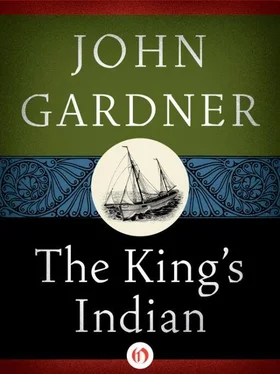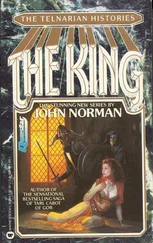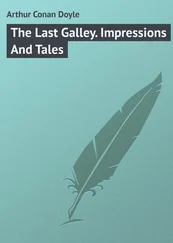“Without a word, without turning his head, Kaskiwah moved his hand toward mine as if to take it in a silent gesture of friendship. I opened my hand to receive his. He dropped in two mushrooms. ‘Eat,’ he said. ‘From the King.’ I wasn’t sure, the next instant, whether he’d spoken or I’d imagined it.
“I looked down at them, suspicious. If ever poisonous mushrooms existed, these looked to be the ones: Black, stiff, shriveled — with curious white specks all over them — they looked like the souls of two burnt-up lizards just recovered from Inferno. I could feel the skin of my face tingling. How could I know that it wasn’t to kill me, silence my idle talk for good, that he handed me those toadstools? I squinted at him. He gazed at the sea. I had seen how calmly, how indifferently, he threw his harpoon at God’s own benthal vicegerent. Why, then, should the slightest flicker discomfit the man as he handed me my doom? Could I be sure it wasn’t him that dispatched my Negro? But even as I was thinking all this, I remembered Rousseau and was ashamed of myself. I was cringing from possibilities higher than my own, and defending cowardice by base, degrading, white-man’s argument. It was civilization — or at any rate, it reasonably might be — that darkened my mind with such wicked thoughts. They were thoughts perhaps foreign to an Indian, a man who knew that men and the land or sea they live on are one, an indivisible being. Men close to Nature killed for a purpose, not for sport, much less from whim. Surely the mushrooms were safe, then, a gift to be treasured! Quickly, before I could lose this happy optimism, this possible avenue of escape from deadly separate-ness, I popped the mushrooms in my mouth and gagged them down. Then, proud of myself, I patted Kaskiwah’s shoulder. ‘We brothers,’ I said.
“We gazed out at the sea in companionable silence.
“As we gaze, a far-off voice calls out, ‘Ahoy!’ I smile, thinking about it, slightly alarmed that my mind is not what it usually is, and I glance at Kaskiwah. He gazes at the sea. ‘Ahoy!’ says the voice. I blink once or twice and peer in the direction of the voice more intently. I notice something troubling the water a hundred yards off, and I lean forward a little, with another quick glance at my comrade, who gazes on. To my surprise, an object comes bubbling up out of the ocean, a thing like a swordfish snout. As I continue to stare, it reveals itself as the bowsprit of a whaling vessel, because up comes the vessel, little by little, forecastle, decks, masts, sails, and all. Remarkable enough, the instant it hits the breeze it’s as dry as a biscuit. ‘Ahoy!’ says the white-bearded man on deck, and waves at me. ‘Ahoy,’ says I, and waves back, still a little perplexed by the general direction of things. With a pair of reins such as coachmen use, he turns the ship towards us, and when he’s twenty foot away, his bow tandem to our stern but his ship sailing comfortably backwards, he says:
“ ‘Even death may prove unreal at last, and stoics be astounded into Heaven.’
“ ‘That’s so,’ I call to him. ‘Upon my soul!’
“He nods, delighted, and waves his cap, then cups his hands by his lips again and calls to me, ‘Man, beast, grass, ‘tis all one: Bearers of crosses — alike they tend, and follow, slowly follow on!’
“ ‘That’s a fact!’ I answer. ‘By crimus, that may well be!’ I feel queerly triumphant.
“He nods and smiles. Then, with a wave, he noses his ship toward the bottom again, and down slow and easy she goes, with the man still waving. The breeze was suddenly filled with music — harps, violins, pianos, pipe-organs — such a concert as never was heard of from Moscow to London. Great white birds came flapping silently out of the south, and for some reason — the music, it may have been — it did not impair their dignity in the least when they dropped shots of excrement, every chunk of it enormous as the White House and vastly more majestic. A pigeon-like thing twice the size of a man came flopping slowly, gently down and closed his crooked pink feet on the rail. Tool, retreat!’ he tells me.
“I closed my eyes. It was all still there. With a cunning that pleased me, I deduced that it must be all in my mind — or, perhaps, in mine and Kaskiwah’s. ‘Kaskiwah,’ I said thoughtfully, ‘I’m going to bed.’
“He gazed at the sea.
“I got up, carefully, and made my way toward the forecastle. The enormous pigeon or webless boobie walked beside me, his wing on my arm.
“ ‘Thou teeterest on the rim,’ says he, or something to that effect, and winks his eye.
“When I awakened, days later, Kaskiwah had left us and the world had become itself again. But ever since, I’ve had spells of other-worldliness. They come and go, like other pleasures, and they tell me nothing of any great significance, so far as I can see. They give me a certain comfort, of course. They fill a man’s soul with a healthy, groundless confidence.
“Says Augusta: ‘Why are you looking so strangely at me, Jonathan?’
“ ‘I was thinking about that sailor.’
“She looks worried, suspicious.
“ ‘That sailor with the knife in his neck. You were standing right beside him. How could the fellow who did it reach past you, without—“
“ ‘The knife was thrown.’
“ ‘Ah! Thrown!’
“She looked in alarm at the door leading to the chartroom, where her father and Jeremiah were at chess. ‘It was horrible, Jonathan. Horrible!’
“I nodded thoughtfully.’ ”He’s not the real Captain,” that’s what the sailor was telling me,’ I said. ‘Your father’s behavior was so strange, there on the schooner — so unlike him, I mean — that for a minute I thought—’
“She shot a wild glance at me, and her hand went to her mouth.
“ ‘Tell me the secret, Augusta,’ I said.
“She stood rigid, not breathing, no color in her face, and I caught hold of her hand, snatching it from her lips to make her speak. The sensation went through me like an electric shock: It was the same hand I’d seized in the darkness, from my bunk — small and wet and as cold as ice. ‘Alas, more’s the pity!’ cries the great white bird.
XXI
“We bore on south.
“I wrung my hands, a mournful spectacle, avoiding Augusta, avoiding all thought of the dark implications, till at last Billy More took pity on me.
“ ‘The Captain he’s got a great dream,’ says Billy, clinging like a bat to the crusted rigging. The sky was cloudless and bitterly cold, the sea such a mirror you could barely make out the horizon line. Our breathing made steam, and Billy’s red beard was flecked with ice.
“ ‘Aye,’ says I, too morose to care about encouraging him.
“He smiles like a leprechaun. His bluegreen eyes are so filled with twinkles I’d hardly believe him if he told me and swore on the Bible my name was Upchurch. My nose, when I look down it, is red. He said: ‘ “The fish beyond the whale,” the Captain calls it. But it ain’t no fish; it’s men, Jonathan — or mebby ghosts. He’s lookin’ for his shadow.’
“I mused halfheartedly on the strange remark. He had, Billy More, a peculiar manner of expressing himself; I’d found by experience it was best to lay to and wait him out. He smiled down from his perch above me, his legs clamped tight on the stay from which he worked, leaning out to the yardarm. We’d suffered a good deal of wind damage, the night before. We’d been hitting storms almost nightly of late, and now and then it was touch and go as to whether we’d skirt the icebergs or take up residence with Davy Jones. We were circling around and around in the area of the Vanishing Isles. ‘He ain’t informed you on his business yet, I take it,’ Billy More said.
Читать дальше











![John Bruce - The Lettsomian Lectures on Diseases and Disorders of the Heart and Arteries in Middle and Advanced Life [1900-1901]](/books/749387/john-bruce-the-lettsomian-lectures-on-diseases-and-disorders-of-the-heart-and-arteries-in-middle-and-advanced-life-1900-1901-thumb.webp)
